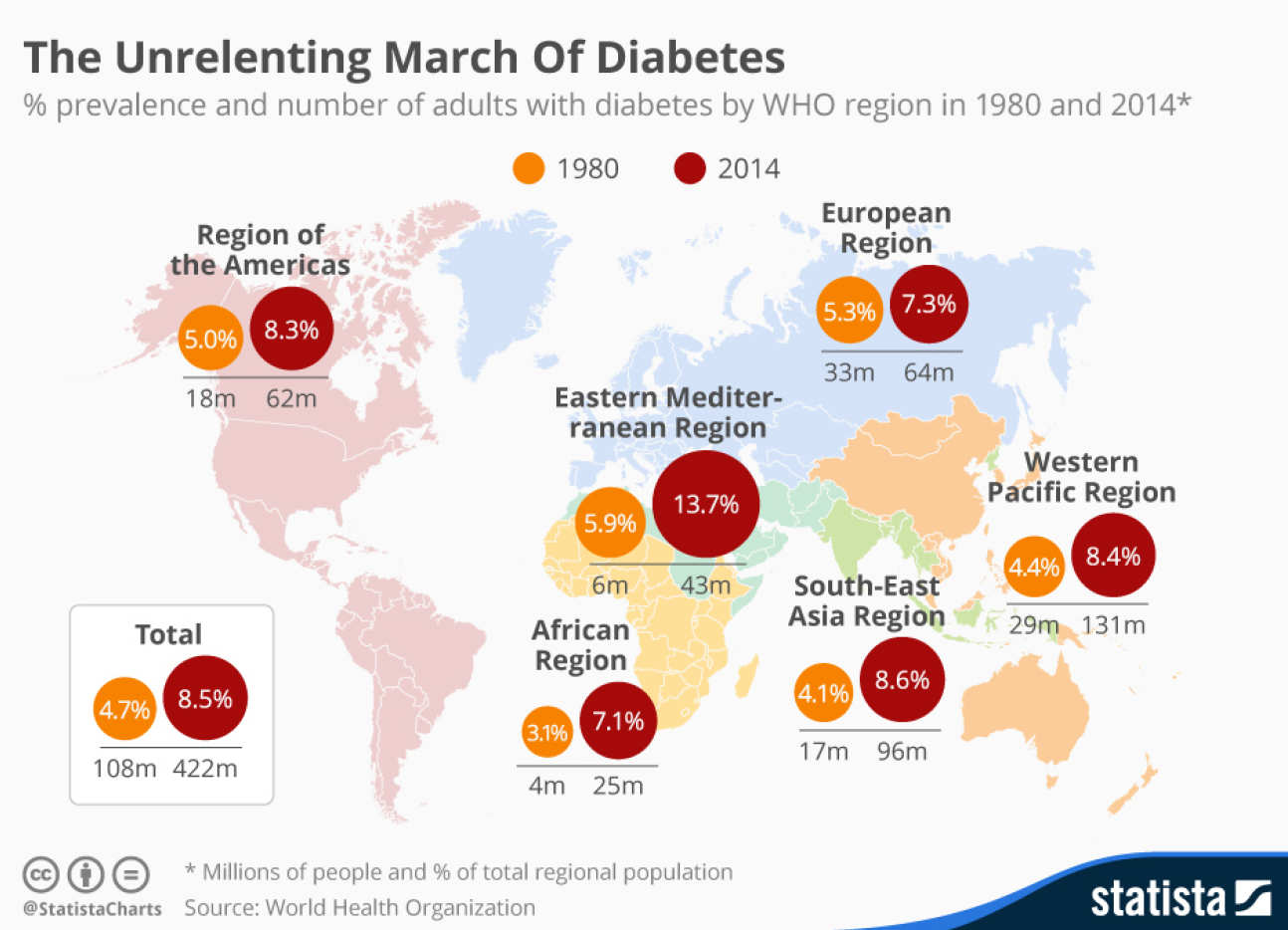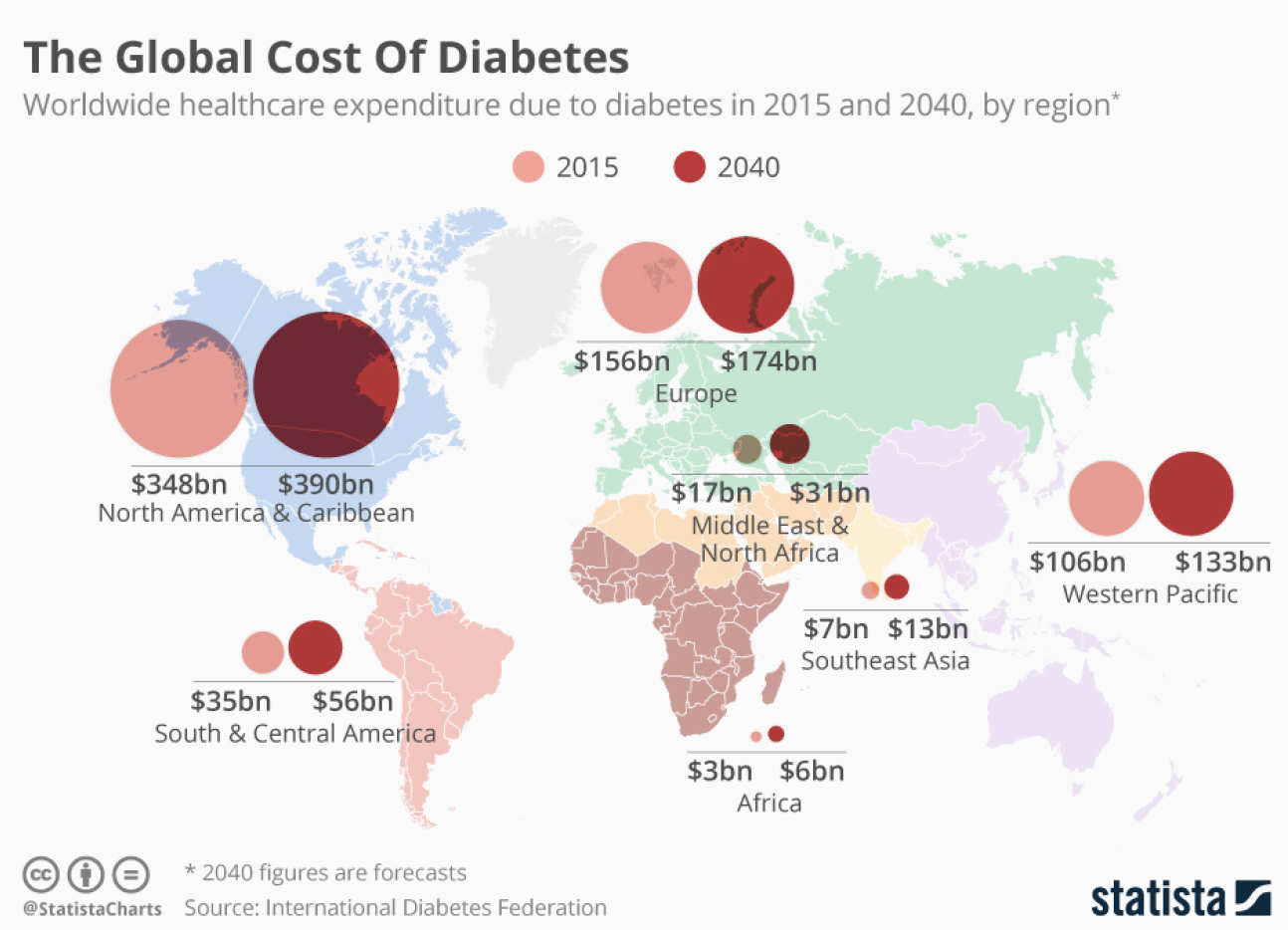Impact of Diabetes on a Global Scale
Diabetes mellitus is a disease that affects millions of people worldwide.

In 2015, The International Diabetes Federation estimated that 415 million adults aged between 20-79years of age had diabetes. Expanding from this, it is estimated that this number will increase to 642 million by 2040 (Atlas 2015). In addition to this fact, it is estimated that 318 million adults have impaired glucose regulation, which is where an individual has higher than normal blood sugar levels, but not high enough to be diagnosed as having type 2 diabetes.
In the United Kingdom
In 2013, 2.7 million people in England had diabetes (Gatineau et al. 2014), with 90% of whom had type 2 diabetes (UK 2014). This does not include the half a million individuals who are estimated have undiagnosed type 2 diabetes.
In addition, an estimated 5 million people were thought to have a high risk of developing type 2 diabetes (National Cardiovascular Intelligence Network NCVIN 2015).
There has been an increase in diagnosed diabetes from 1994 to 2011 (women: 1.9 – 4.9%, men: 2.9 – 7.0%, see Figure 1), with a similar increase in the rate of undiagnosed diabetes. If trends continue, the number of adults with type 2 diabetes is expected to reach 4.6 million in 2030 (Moody 2011).
How does diabetes impact a person’s life?
Diabetes is a chronic, long-term condition which has a significant impact on a person’s life. Long term consequences include reduced Quality of Life (QoL)
- High relative risk for other diseases, in particular, coronary heart disease and stroke
- Increase risk of peripheral vascular disease, nephropathy, peripheral and autonomic neuropathy
- Increased risk of blindness due to eye blood vessel damage
- Lower limb amputations, sexual dysfunction, impaired immune function, and increased risk of infection
- Increased risk of certain forms of cancer
- Increase fatigue due to sleep-related breathing disorders
- Mental health issues including depression and cognitive impairment with depression rates are twice as high among people with diabetes (Gatineau et al. 2014).
- 23,986 people were said to have a premature death in England and Wales in 2013 due to diabetes (HSCIC n.d.).
Diabetes Mellitus and the Healthcare System
 In the UK, the cost of diabetes is estimated at over £8 billion per year, with 80% accounted for by diabetes related complications such as CVD, amputations, renal failure, and sight loss (Hex et al. 2012).
In the UK, the cost of diabetes is estimated at over £8 billion per year, with 80% accounted for by diabetes related complications such as CVD, amputations, renal failure, and sight loss (Hex et al. 2012).
Between the years of 2012-2013, over 50 000 people were admitted to hospitals in England with diabetes as the main diagnosis (Hex et al. 2012). The impact of such prevalence is also evident in the healthcare system. Diabetes places an immense strain on health care systems finances and resources.